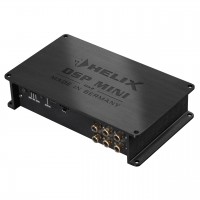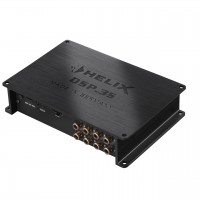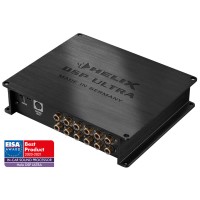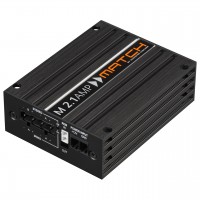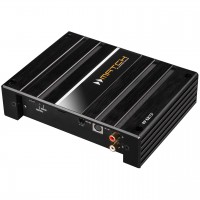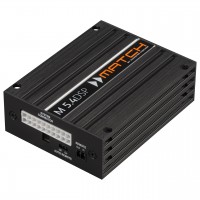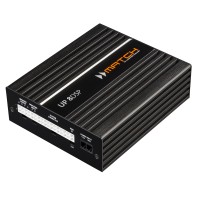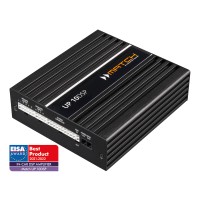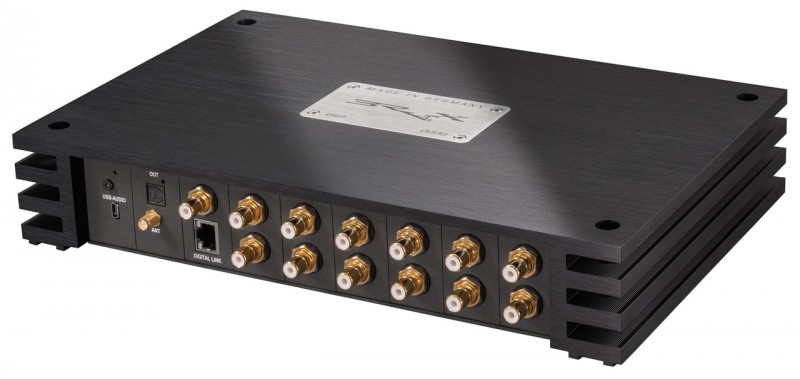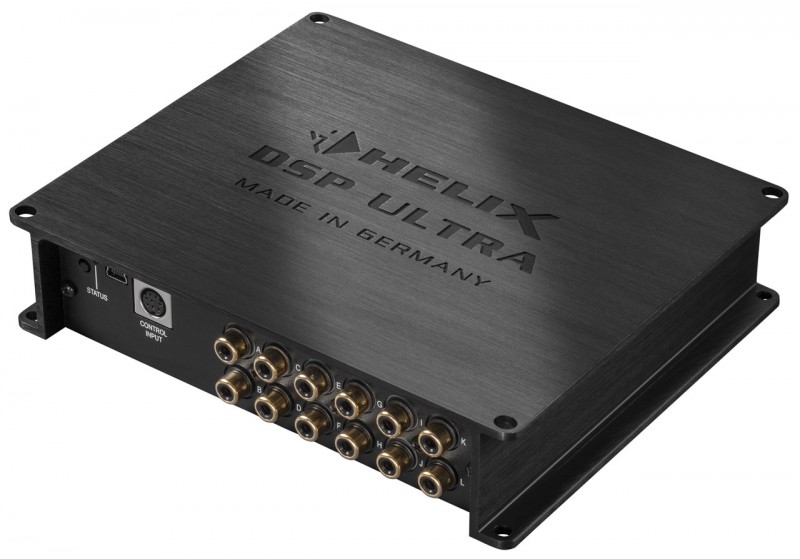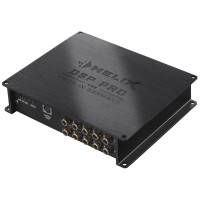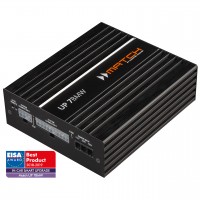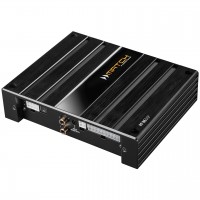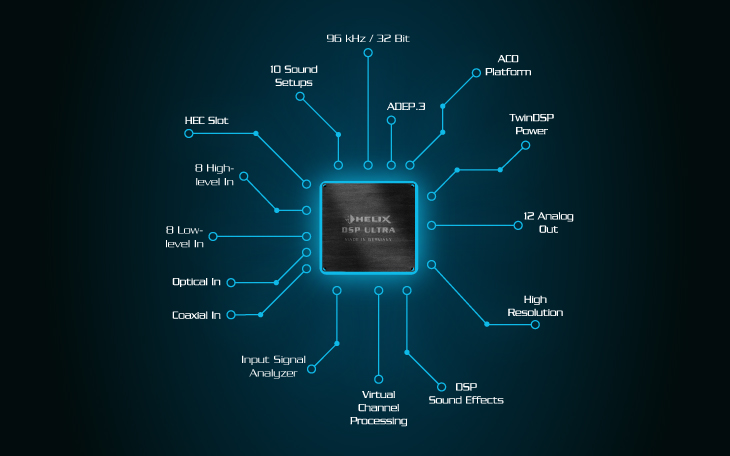
Dirigent der Signale

EXCELLENT CAR AUDIO – WITH DSP TECHNOLOGY FOR GENUINE HI-FI
To play well, a good orchestra needs a skilful conductor. The same is true for a music system with high-quality acoustics. To give you a superb listening experience, every single component within the system needs to be perfectly in tune with all the others. This is why we at Audiotec Fischer believe that, when it comes to sound quality, the digital signal processor – the DSP – is the most important element in your car. It’s the conductor of all the signals.

How do we perceive music?
We all have different ways of enjoying music. For one person it’s a good way to relax, while someone else needs it to let off steam. Loud music, soft music – our preferences can vary. Yet it always touches us at a deeper level. Music means emotions, whatever form their expression may take.
Excellence in musical reproduction always involves what is generally known as hi-fi. Anyone who takes even the slightest interest in this area is aware of the elements that create superior sound quality – such as the ideal stereo position, excellent audio dynamics and a good frequency response. We all know the delight of sitting in a perfectly central position between the speakers, enjoying the full breadth of a stereo system.
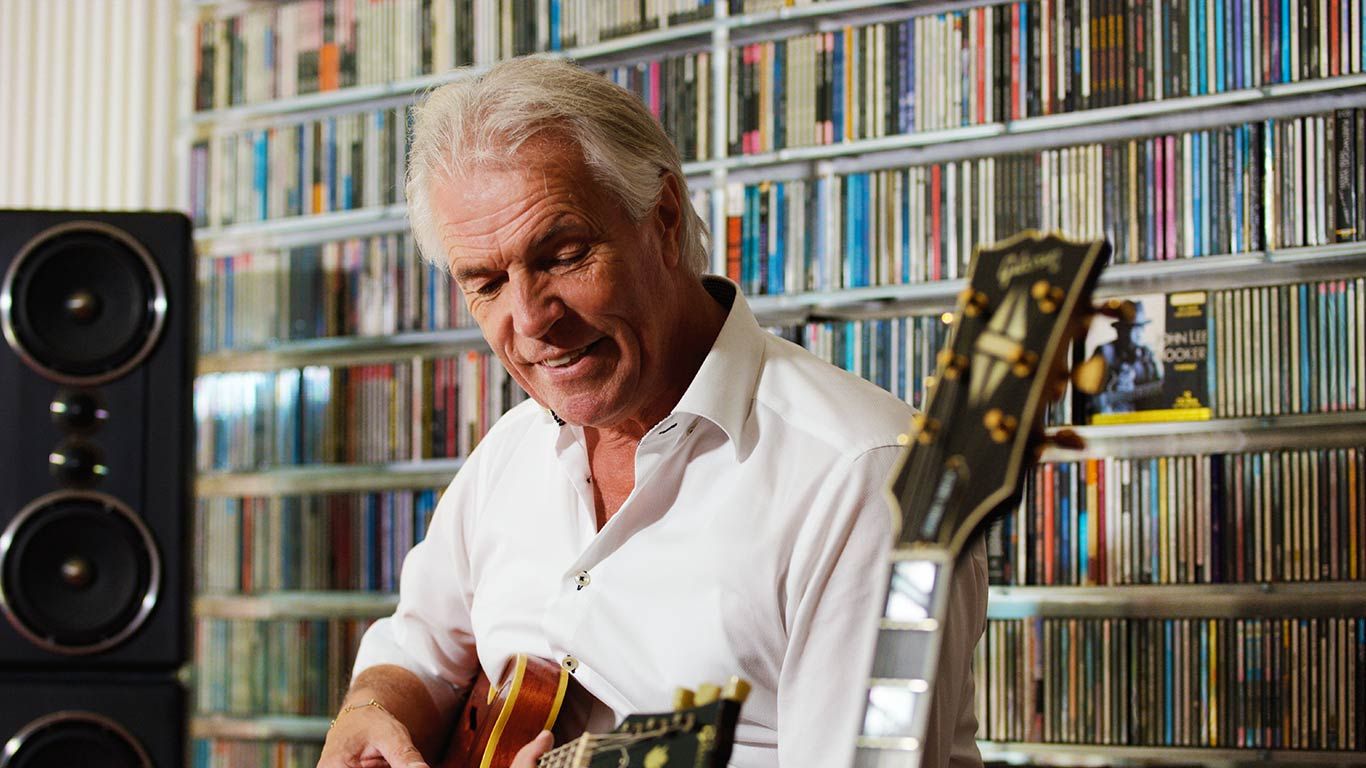
Heinz Fischer
The driver’s seat as a listening position
Taken by itself, this concept seems to contradict the idea of good sound reproduction in a car, as the listening position is dictated by the design of the vehicle. So when a car manufacturer announces a sound upgrade, it is not usually taken seriously by hi-fi experts. In fact, if the hi-fi system of a car is mentioned in the same breath as “auto tuning”, it tends to raise very few expectations, either emotionally or in terms of the sound system.
Yet we are talking about an audio space that is almost unparalleled, with enormous potential to give pleasure to a discerning listener. After all, it’s so rare these days to have half an hour when you can listen to your favourite music without being disturbed. This factor is set to become even more important once we have driverless cars, where we actually have more time for ourselves. So wouldn’t it be fantastic if your car had a system that doesn’t stand between you and the music, but actually gives you a superb listening experience?
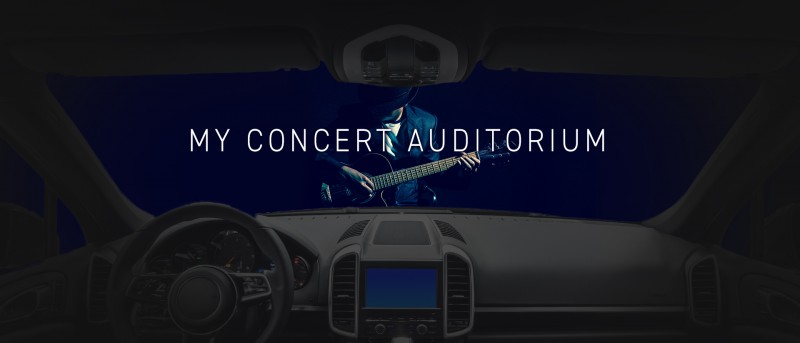
The equipment behind DSP technology
WHY IS DSP TECHNOLOGY SO IMPORTANT FOR GOOD SOUND QUALITY IN A CAR?
High-end car speakers never develop their full potential in a car because they are physically difficult to install. So good sound quality is pure chance. A DSP processor, however, calibrates all the car hifi components to suit the listener, balancing out any shortcomings. It determines which components play when and at what volume and creates a smooth frequency response. The result is a perfectly aligned musical experience.
Delay correction between the speakers and the listener
This only works, however, if each speaker is at the same physical distance from the listener. If you don’t think that’s important, you are probably underestimating the capacity of the human ear. People are capable of noticing the difference when an object a hundred metres away moves just one metre to the side. If a system is left uncalibrated, what we hear is sound without stereo imaging that does not reproduce a soundstage on the dash – an effect that makes no spatial sense to our ears. The worst-case scenario is that the sound appears to “stick” to the tweeter.
Without first correcting the inevitable delay, it is virtually impossible to create a clean soundstage in a vehicle. Our software allows us to precisely measure the listener’s position at increments of up to 3.5 mm or 0.0105 milliseconds, and at a sampling rate of 96 kHz. As a result, it can calibrate the delay on each of the speakers in such a way that the sound that comes from them reaches your ears at exactly the same time.
It means that voices and instruments do not stick to the tweeter, but occupy the full breadth before the listener, as intended. Each instrument has its exact place, and the majority is reproduced centrally, so that a non-specialist might believe that there is one central speaker in the vehicle.
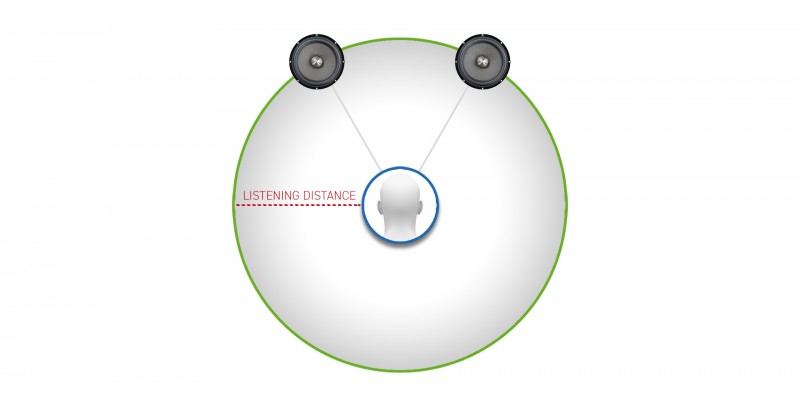
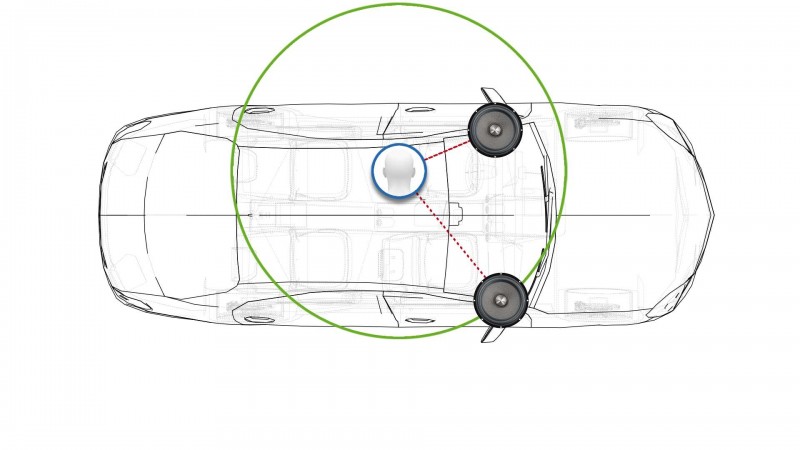
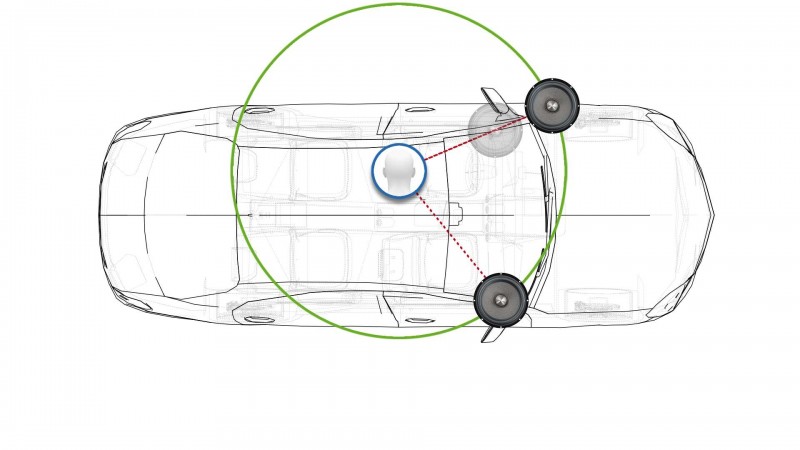
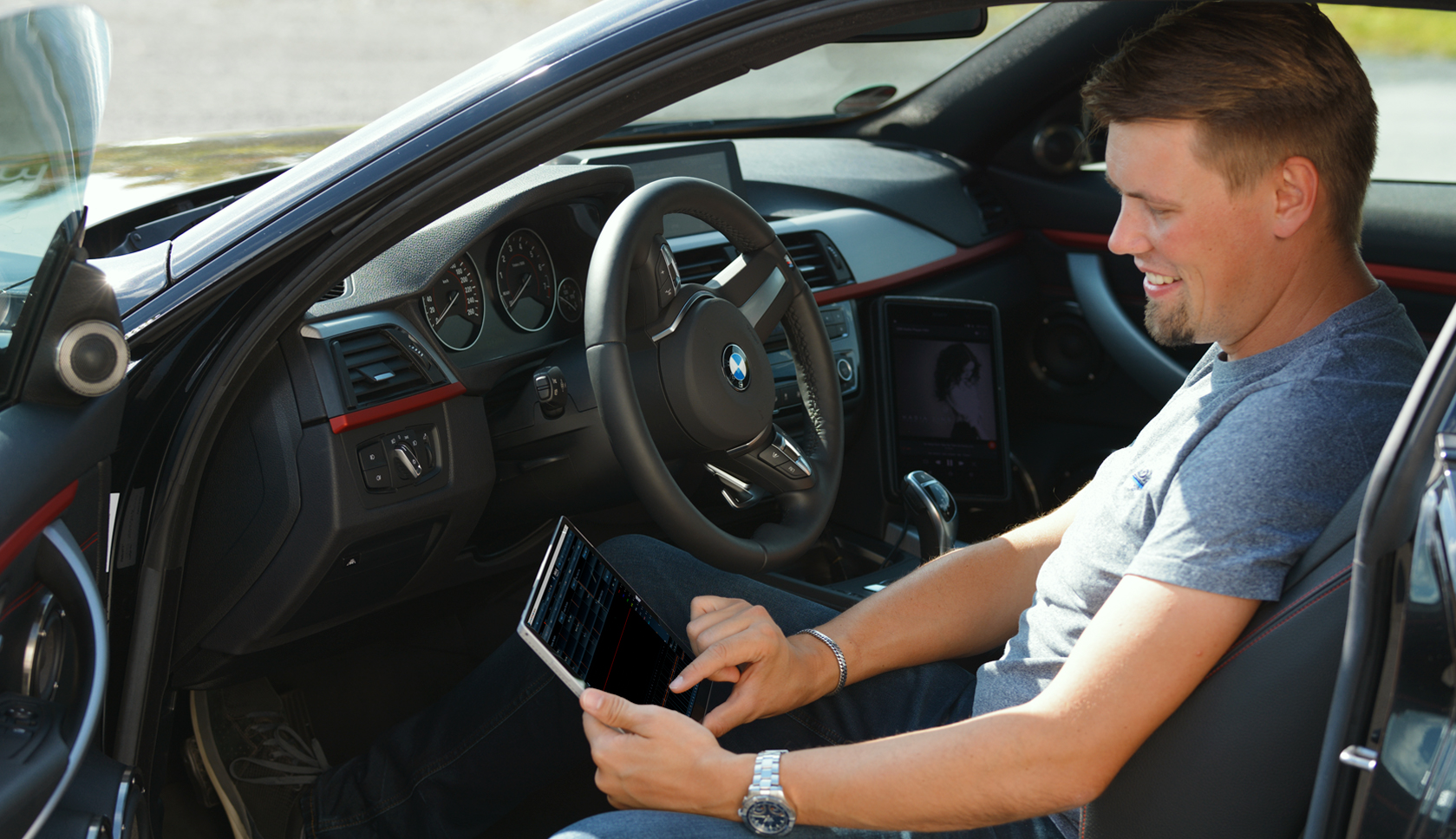
“By adding time alignment to the stereo effect, a DSP makes all the difference, and it is therefore a must-have for outstanding in-car audio quality. When you then add the high-quality equalisers, which create a linear frequency response, you can easily forget that you’re in a car and not a sound studio.”
Julian Fischer
Frequency response adjusted by digital equalisers
A well-balanced system can faithfully reproduce any music style. This is because sound engineers use calibrated components when recording and mixing the music. So when we reproduce the music in calibrated form, we get as close as possible to the pleasurable listening experience that the sound engineers intended.
This is the point where the digital equaliser takes control of the signals, rectifying any imperfections caused by the installation and creating a homogeneous frequency response across the entire audio range.
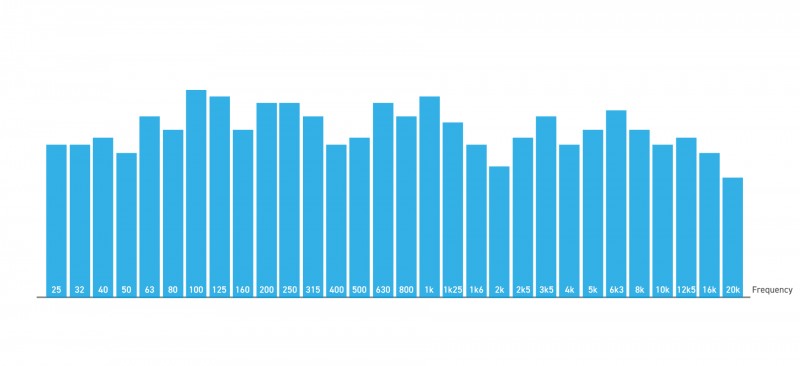
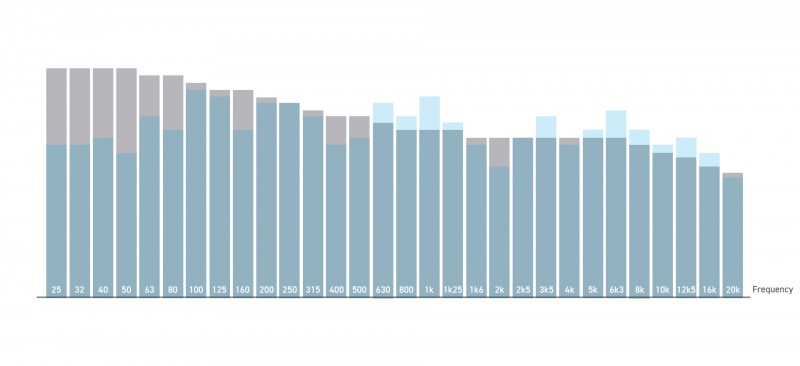
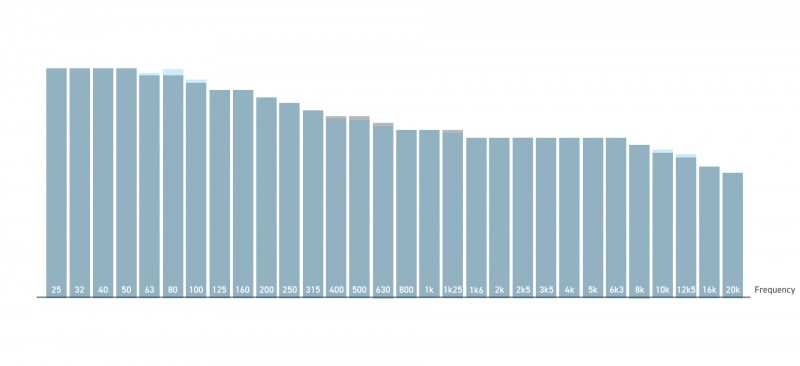
Digital crossovers
A speaker only reaches its optimum potential within its own particular frequency range – which is why the tweeter, for instance, is separated from the low frequencies by a crossover. In a conventional system, this is usually achieved by analogue crossovers. Unfortunately, analogue crossovers can only impact the sound to a limited extent if it needs to be optimised. Moreover, a further component is required, which can have a negative impact on the sound and is also subject to tolerances.
This is where the DSP comes in with its digital crossovers. Technically, these are called “active” crossovers, as each speaker needs to be addressed with its own amplifier output stage. As a result, each speaker can be assigned its ideal frequency range without any loss in performance. If the configuration needs to be adjusted, it can be done conveniently, accurately and in real time via the DSP, with each channel allowing a choice of high pass, low pass, band pass and bass boost.
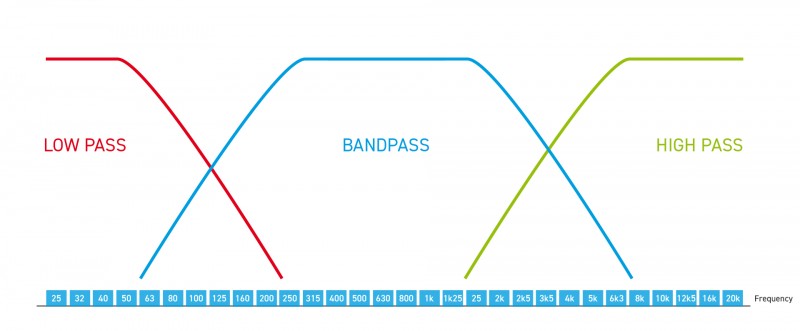
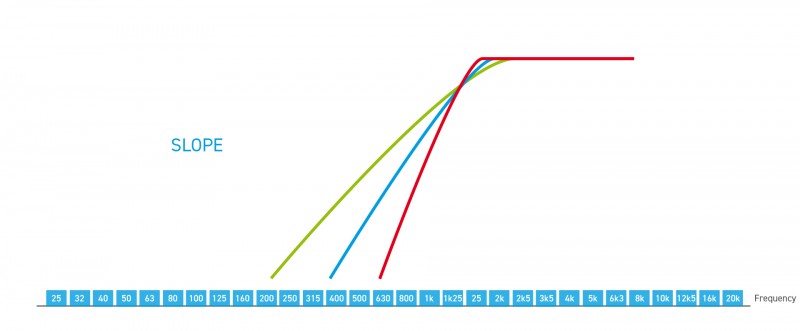
Digital signal processors from Audiotec Fischer
Audiotec Fischer offers DSP processors for all three of our brands – BRAX, HELIX and MATCH – either as stand-alone units or as part of the power amplifier. All Digital Sound Processors are set via software – the DSP PC-Tool – so that the same configuration options are available for all systems.
HELIX digital signal processors
In addition to the extremely powerful 64-bit audio DSP, Audiotec Fischer has now added the native 32-bit DA and AD converters of the latest generation, which deliver a unique hig end sound experience thanks to their outstanding signal resolution. The improved internal power supply and its maximum output voltage – now increased to 8 V – help to boost the sounds quality in your car even further.
MATCH digital signal processors
It’s never been easier to leverage the benefits of a DSP. All DSP processors have been integrated into the amplifiers, and installation couldn’t be simpler – just use the plug & play cable together with the mounting plate, both supplied to ensure an exact fit, right where your original amplifier is installed. For preconfigured vehicles, Audiotec Fischer provides a painstakingly customised ready-made setup.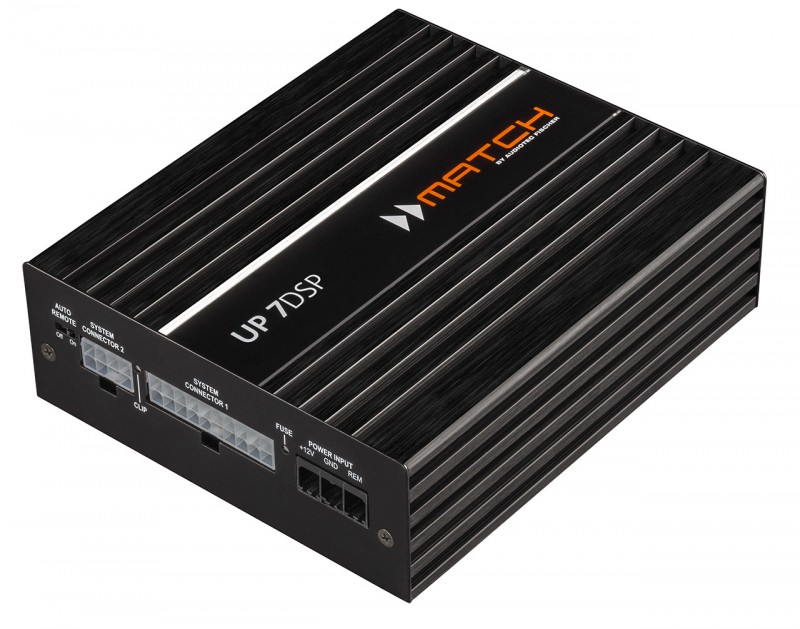
BRAX digital signal processor
This is not only the first signal processor in the market that rightfully bear the BRAX logo – it also raises the standard of High End Car Audio to an entirely new level. Audiotec Fischer has spared no effort to perfect every single detail of this high-tech masterpiece.
